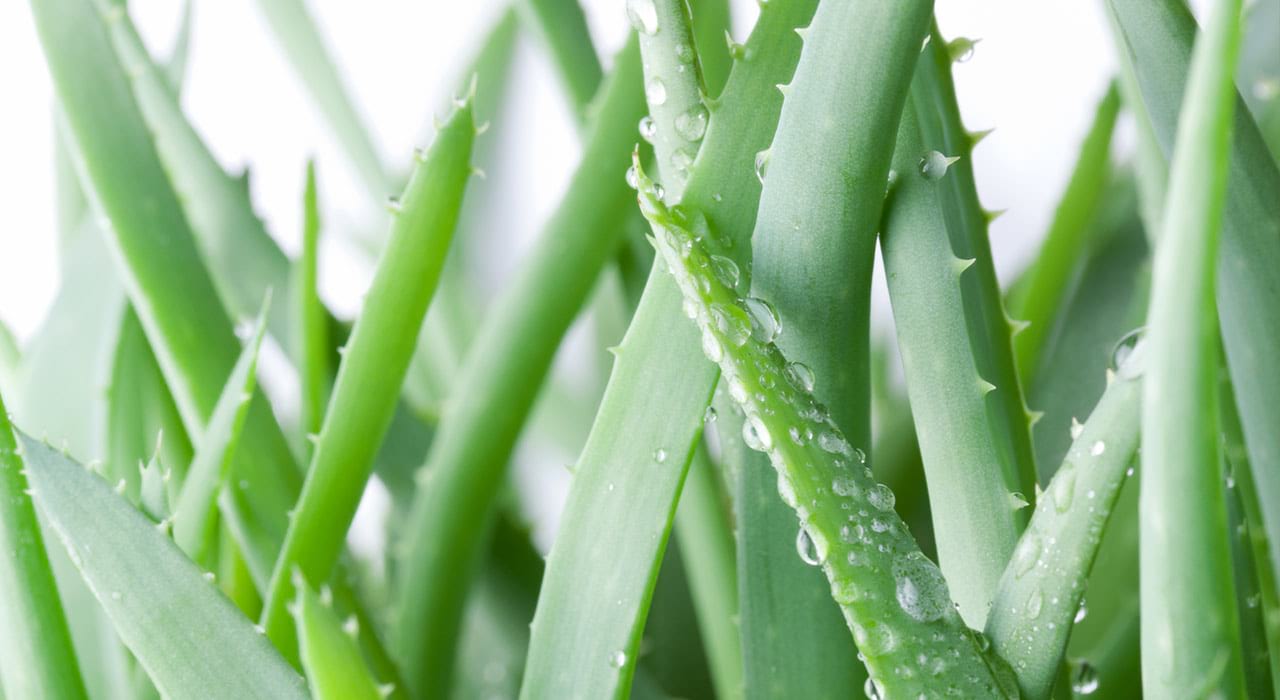By Harriet Mallinson | Published on June 16, 2017
A plant with bitter and prickly leaves doesn’t automatically leap out as something that can be of use to humans, but aloe vera has been used for medicinal purposes as far back as ancient Egypt when it was called “the plant of immortality.â€
The succulent, native to North Africa, Southern Europe and the Canary Islands, boasts leaves which contain a viscous, translucent gel which have remarkable healing qualities.
The gel is made up of around 96% water, 18 of the 20 amino acids found in the body and vitamins A, B, C and E. It also has complex carbohydrate, acemannan which allows nutrients to nourish the body’s cells and relieve them of toxins.
So, what is this gloopy stuff good for?
Aloe vera can aid with digestion as it normalizes pH balance, reduces yeast formation, promotes digestive bacteria and regularizes bowel processing.
A study published in the Journal of Research in Medical Sciences reported that 30ml of aloe vera juice twice a day decreased the level of discomfort as well as flatulence in 33 patients with irritable bowel syndrome (IBS).
Experts advise drinking the juice early in the morning on an empty stomach.
It can also help with gastroesophageal reflux disease (GERD), a digestive disorder that often results in heartburn. Consuming one to three ounces of aloe vera gel with a meal could reduce the severity of GERD, a 2010 review suggested.
Aloe vera has also been known to soothe and heal stomach ulcers due to its antibacterial agents and natural healing properties that can restore the stomach lining.
– RELATED: Everything You Need To Know About Matcha –
The gel can serve to boost the immune system. Amino acid, bradykinase stimulates the immune system and kills infections. Zinc too will help maintain the immune function. The numerous antioxidants will boost this, too, as well as cut out free radicals in the body.
According to the Mayo Clinic, aloe has been reported to safely control cholesterol levels in diabetic patients. There’s also evidence that aloe vera can support weight loss thanks to its vitamins, minerals and amino acids.
But is it all good news?
Until 2002, aloe vera juice was used as a main component in a plethora of over-the-counter laxatives, but it was then pulled from the shelves by the FDA due to insufficient information regarding their safety.
The case for the juice didn’t improve when the results of a two-year study were released by the National Toxicology Program: researchers had fed rats with non-decolorized whole-leave extract of aloe vera and ultimately there was “clear evidence of carcinogenic activity in male and female rats, based on tumors of the large intestine.”
However, before we rush to assume aloe vera can cause cancer – we must remember the tests were not on humans and the way it is processed can impact the different compounds found in the plant and consequently the effect on the body.
Researchers in the rat study used non-decolorized whole-leaf aloe vera extract, but when the leaf is decolorized (a charcoal filtration process) the components that give aloe vera its laxative properties, the anthraquinones, are removed. One of these anthraquinones is Aloin which is believed to be the main contributor to tumor development in the rats.
Therefore, when opting for an aloe vera juice, make sure it doesn’t contain Aloin. More research still needs to be carried out, so, for now, proceed with caution when ingesting aloe vera.
Harriet is Editor of MACROS and perfectly capable of eating an entire log of goat’s cheese in one sitting.

